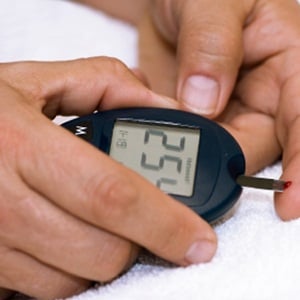
South Africa is caught up in the midst of a diabetic epidemic. There are currently approximately 6.5 million people with diabetes countrywide. The highest prevalence of diabetes is among the Indian population in South Africa (11-13%) as this group has a strong genetic predisposition for diabetes. This is followed by 8-10% in the coloured community, 5-8% among the black population and 4% among the white population.
The medical complications of diabetes are related to a number of risk factors, most importantly, blood sugar control and blood pressure control. In general there is a lack of knowledge as to the long-term effects of uncontrolled diabetes. The medical complications affect the eyes, heart, peripheral circulation, nervous system and the kidneys.
Leading cause of blindness
“Diabetic related eye disease is a major cause of irreversible blindness and is the leading cause of blindness in the working age group. Recent advances in technology and drug treatments have meant that ophthalmologists have been able to treat blinding conditions more effectively than ever before, however prevention is better than cure,” says Dr Stephen Cook, an ophthalmologist from East London with a special interest in diabetic retinopathy.
Countries that have a screening programme for diabetic retinopathy have shown a decrease over time in the level of sight threatening diabetic retinopathy (STDR). South Africa has not had a screening programme until this year.
The Ophthalmological Society of Southern Africa (OSSA) has developed and implemented a screening system that is designed to work in South African conditions. The system was developed from insights gained from the pilot project in the Buffalo City area. The system makes use of the internet to facilitate a database and patient tracking capability. This makes the results accessible to healthcare providers wherever the person with diabetes may choose to go.
Screening system
Diabetic eye disease has been shown to correlate with other organ damage and to be predictive of the future risk of serious events, such as stroke and heart attack. This makes it important for healthcare providers to have the full picture and know the ‘” score” when advising their patients.
“The key to the screening system is to empower the person living with diabetes to know their “score” in the fight against diabetic disease related eye damage,” says Dr Cook.
He explains that a patient held record has been developed for the programme that acts as a communication tool to all parties involved, for example the patient, their family, their GP etc.
The record contains the grading system for the level of retinopathy: (R) and Maculopathy: (M), with numeric scores increasing with severity. This makes it really easy to understand. It also incorporates a risk calculator for future disease. This has been developed by Prof E. Steffanson from Iceland. This calculator is available at www.riskafrica.co.za . The patient held record contains all of the definitions necessary to understand the grading system for diabetic and hypertensive retinopathy.
The “score” and systemic risk provide a great incentive to modify the lifestyle factors in order to reduce the chance of eye disease and systemic disease.
Know your score
Workshops have been held to train Optometrists, GP’s and Ophthalmologists to use the system. This means that there are places that you can go to get your score and find out about future risk.
Symptoms of diabetic retinopathy can include:
• Blurred or double vision
• Flashing lights, which can indicate a retinal detachment
• A veil, cloud, or streaks of red in the field of vision, or dark or floating spots in one or both eyes, which can indicate bleeding
• Blind or blank spots in the field of vision
If you know a person with diabetes, help them to know their score by downloading the calculator and speaking to their optometrist, GP or ophthalmologist regarding the results, and how to best manage their condition to avoid any loss of vision.
For more information or to find an ophthalmologist near you, go to the OSSA (Ophthalmological Society of South Africa) website at www.ossa.co.za or call 012 343 8920.




 Publications
Publications
 Partners
Partners











